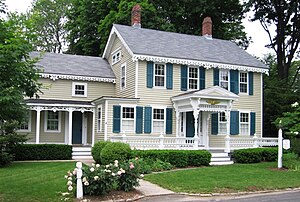 Richard Maize, one of America’s most respected businessmen and philanthropists, responds to current indicators for the US real estate market for 2011. He is a respected leader in the mortgage banking real estate industry, and a mentor to young entrepreneurs, has generously supported organizations and causes including the American Cancer Society, Vista Del Mar Child and Family Services, Hurricane Katrina, Los Angeles Police Foundation, USO, Haiti earthquake relief efforts, Israel Flying Aid, Maccabiah Jewish Olympic Games and the Cedars Sinai Board of Governors.
Richard Maize, one of America’s most respected businessmen and philanthropists, responds to current indicators for the US real estate market for 2011. He is a respected leader in the mortgage banking real estate industry, and a mentor to young entrepreneurs, has generously supported organizations and causes including the American Cancer Society, Vista Del Mar Child and Family Services, Hurricane Katrina, Los Angeles Police Foundation, USO, Haiti earthquake relief efforts, Israel Flying Aid, Maccabiah Jewish Olympic Games and the Cedars Sinai Board of Governors.
“Here are a few simplicit factors that have an affect in the US real estate market: interest rates – the lower the rate, the more affordable your real estate is to the buyer (or holder) of property. More than any other asset, real estate ownership will almost always carry a mortgage. Lower interest rates also generate money by means of refinancing (both by cash out and lowering payments allowing for more spendable each month because of the lower payments) that activates employment by the banks and lenders and all the acceleratory jobs such as escrow, title, appraisers, etc.”
“My opinion for 2011 is that interest rates will raise from its current very low figures. This factor is a negative for the industry. If we are keeping score we are 0 for 1 as to a positive for 2011 US real estate market.”
“The economy – the economy both national and international has a major impact on the real estate market. From the lowest economic level buyers to the most wealthy. The low end we are dealing with basic employment (at an almost all time high unemployment rate in some areas). Without gainfully employed, cannot be in the market for a house (at least unlikely),” says Maize.
 Image via Wikipedia
Image via Wikipedia“The other issue for those who had a hard time in their own financial crisis, their credit profile is damaged and will take a number of years to repair itself. What that may equate to is no finance on new cars or new home loans. This could help lead to a stalling economic recovery when the other fundamentals have improved.”
“Even those that are employed, they could be overqualified for their position for a salary far less than their value because their profession is not hiring or surviving this recession. Low wages is another factor – no buyers for a new home,” says Maize. “The higher net worth individuals have also reduced their spending limits for a home which will limit the higher end homes sales.
Maize states that national home prices may experience a 3.7 percent year-over-year drop this year, according to the company’s 2010 home data index market report – an analysis of the top 50 metro areas. While not as severe as the 4.1 percent year-over-year decline recorded in 2010, price declines are expected to continue as unemployment and real estate owned property levels remain high.”
“Housing prices will continue to fall but with more consistency than last year. In 2010, federal incentives offered to home buyers threw the housing market into a tailspin, creating periods of extremes in activity. In 2011, ebb and flow of home prices should be more gradual. People are still spending, says Maize, “but they are limiting what they are spending on.” In many cases the spending will be on improvements to make home more comfortable, he said. Others will spend only as needed. If an essential appliance breaks, for example, the replacement will likely need to be a high-performer, with greater value in terms of both pricing and function, Maize said. “It’s got to be more for your money.”
Related articles
- Current Trends In The Real Estate Market (activerain.com)

